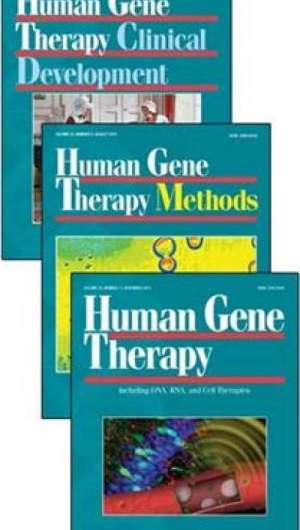Novel RNAi therapy silences mutated Huntington's disease gene and reduces symptoms

A targeted gene silencing strategy blocks production of the dysfunctional huntingtin (Htt) protein, the cause of Huntington's disease, a fatal, inherited neurodegenerative disorder. The effectiveness of this RNA interference (RNAi) approach in reducing levels of mutant Htt protein and disease symptoms in a mouse model of the disease is described in Human Gene Therapy.
Lisa Stanek and coauthors from Genzyme (Framingham, MA) used an adeno-associated viral (AAV) vector to deliver a targeted nucleic acid sequence called a small interfering RNA (siRNA) into the cells of affected mice. The siRNA selectively binds to the mutated gene, blocking disease-causing Htt production. The authors present data demonstrating the ability to deliver the therapeutic RNAi into the cells, reduce mutant Htt levels, and impact behavioral deficits in the mice without causing any noticeable neurotoxicity, in their article "Silencing Mutant Huntingtin by Adeno-Associated Virus-Mediated RNA Interference Ameliorates Disease Manifestations in the YAC128 Mouse Model of Huntington's Disease."
"The Genzyme group uses state-of-the-art delivery technology and a gene silencing approach to generate very promising preclinical data for Huntington's disease," says James M. Wilson, MD, PhD, Editor-in-Chief of Human Gene Therapy, and Director of the Gene Therapy Program, Department of Pathology and Laboratory Medicine, University of Pennsylvania Perelman School of Medicine, Philadelphia.
More information: The article is available free on the Human Gene Therapy website.













